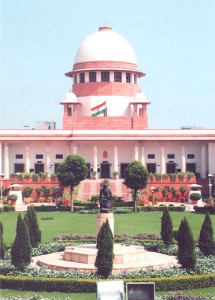SC to hear Delhi govt’s suit for Statehood
On Thursday, a Division Bench of the Delhi High Court cleared the air that Delhi is a Union Territory with the Lt. Governor as its administrator and not a State.
Barely 24 hours after the Delhi High Court delivered a blow to the Delhi government’s efforts for full Statehood, the Supreme Court will on Friday hear the Arvind Kejriwal government in a separate suit seeking a judicial declaration of the boundaries of the constitutional relationship between it and the Centre in administering the National Capital.
On Thursday, a Division Bench led by Chief Justice of Delhi High Court G. Rohini cleared the air that Delhi is a Union Territory with the Lieutenant Governor as its administrator and not a State.
The High Court trimmed the Kejriwal Cabinet’s girth by quashing several notifications issued by it without consulting Lieutenant Governor Najeeb Jung. The court did all this by dismissing Delhi government’s argument that the AAP-Centre tussle was a ‘classic’ federal dispute.
The 194-judgment relegated the wrangle to the status of a mere political tug-of-war on ‘services’ matters over which the High Court has full jurisdiction to adjudicate under Article 226 of the Constitution. It observed not every dispute between the Centre and a State government could be classified as a ‘federal dispute’.
This original suit was filed in the midst of the ongoing litigation before the Delhi High Court. It contains identical pleas raised by the AAP government in the High Court – that the dispute between AAP-Centre is a federal dispute over the interpretation of Article 239AA (a special provision for the administration of Delhi and separation of legislative and executive powers between the Centre and the State) in the Constitution.
The hearing scheduled before a Bench of Justices A.K. Sikri and N.V. Ramana comes even before the Delhi government has had an opportunity to file its appeal against the High Court verdict on August 4.
In its suit, the AAP government contends that the Centre is encroaching into its administrative domain and the Supreme Court should now clearly define the powers of the Lieutenant Governor, who represents the Centre, so that none steps on the other’s toes.
It has highlighted issues like how the Delhi Police is run by the Centre unlike in other States.
Disputes have arisen over the last year on the question whether Delhi Government can act in relation to the other matters in List II (State List) without prior approval of the Administrator, that is the Lieutenant Governor.
It argued as to how the government cannot even increase the salaries of its DANICS officers. The LG had previously declared such a hike as null and void.
The Anti-Corruption Branch, Delhi has been restrained from registering FIRs against employees of the Central government for corruption.
Commissions of Enquiry set up under the Commissions of Enquiry Act, 1952 have also not been allowed to function on the ground that they have not been notified by the Lieutenant Governor, it said.
These notifications were subject matter of the High Court litigation and quashed.
Kindly send reply or comments on this topic to [email protected]
Source:Thehindu




